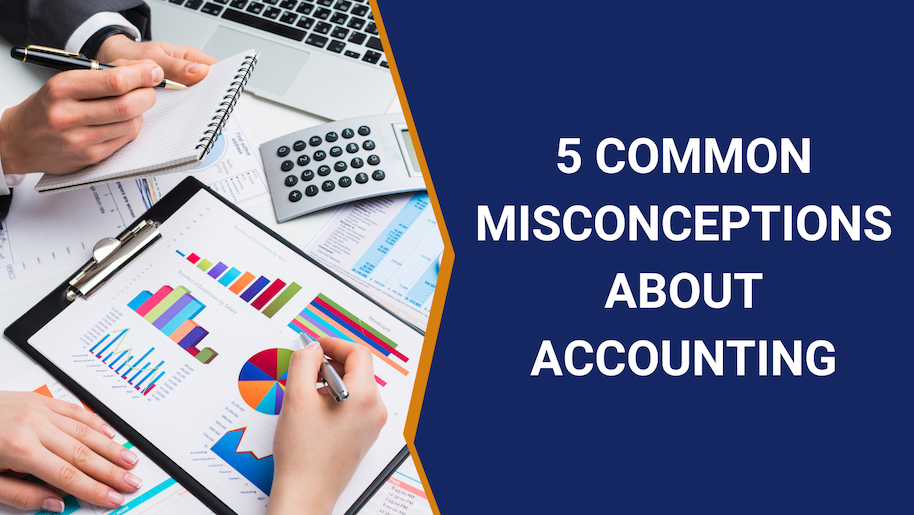Accounting can be difficult to comprehend if your small business isn't an accounting firm, but it doesn't need to be. In fact, financial accounting software can help you envision what your business will look like in the future and figure out how to accomplish your small business objectives while remaining profitable. Some accounting misconceptions that small business owners should be aware of aren't factual.
1. Accounting is just keeping track of money
One of the most pervasive accounting myths is that accounting is synonymous with bookkeeping, which it is not. Bookkeeping, or keeping track of a business's income and expenses, is an ancient skill that dates back to the dawn of civilization. Bookkeeping is a vital component of accounting. Furthermore, it is much more than simply maintaining accurate records as it entails analyzing past financial records and leveraging them to forecast future performance. Accounting primarily entails organizing financial records, comprehending them, and anticipating how your books will appear in the future. As part of your accounting duties, you should periodically review your records and plan your business accordingly.
2. You're not good at accounting
Even though it takes years of schooling and work experience to become a good accountant, many small business owners do at least some of their own accounting. Depending on the size of your business, you might not be able to hire an accountant or outsource the work to a firm. However, you can still do some of your own accounting if you take the time to do some research and practice. With the right accounting software, you can also keep detailed, well-organized records that will be required by an accountant if you decide to go that route.
3. To do accounting, you must be very good at math
For many centuries, keeping books and accounting required calculative skills. When mistakes were made, the money went missing or the business got extra attention from the tax authorities that it didn't want. In the last few decades, however, almost all the math in accounting has been made digital, so if you can use a calculator, you know enough math to do basic accounting. But knowing how to read and double-check the books for your business by using accounting software for small businesses will help, especially if you find numbers that don't add up. Software and calculators make it much easier to do this today. As a small business owner, many free resources tell you what numbers, equations, and formulas you should pay extra attention to.
4. You only have to worry about accounting when it's time to pay taxes
April doesn't have to be such a difficult month. Even though it requires time and effort to file the appropriate taxes for your business, it is less overwhelming if you adhere to the best accounting practices throughout the year. Many small business owners, especially new entrepreneurs, gig workers, and freelancers, may not consider their businesses' finances until it's time to pay taxes. Even if you can't hire a professional, you should always make sure your books and accounting are accurate, so you don't get in trouble with the BIR. It's also essential for your business to thrive and succeed.
5. You don't need help from an expert
Even if hiring a financial expert isn't in your budget right now, you should still make it a priority, as the help is invaluable. Although you can get by if you do your own accounting, the best way to increase your income and avoid a BIR audit is to hire an expert.
Wrapping Up!
Given the numerous myths that surround accounting, it is essential to look for the right kind of software. To that end, Susan.one makes the process easier for your company. They specialize in developing powerful accounting programs that can complete even the most challenging of tasks. Simply get in touch with them for additional details!
